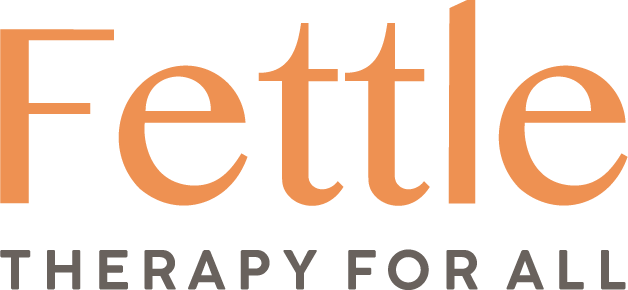Does Online Therapy Work? 2021 Research Says Yes.
Research conducted before and after the pandemic has shown that online therapy is just as effective as face-to-face therapy, and sometimes more effective, especially when combined with self-guided, web-based CBT tools. The effectiveness difference was under 0.4%. Additionally, in some countries, over 18% of rural residents suffer from mental illness. Keep reading for research results and online therapy tips to help you decide if online therapy during the pandemic is right for you.
There is pre-pandemic life, and there is post-pandemic life.
Because of the pandemic, every industry in Ireland and around the globe has had to make significant changes in the ways they do business. Some have questioned if specific services can be offered any other way than physically in-person.
You may be asking, “Is online therapy as effective as face-to-face therapy?” Research published prior to the pandemic and after the pandemic confirms they are equally as effective – and in some cases, online therapy is more effective, especially when combined with self-guided tools, like workbooks and journaling.
In this article, we compare mental health outcomes of online therapy and face-to-face therapy based on peer-reviewed, published research from all over the world.
Online, self-guided therapy modules certainly help, but recent studies (2021) show that a combination of self-guided tools and online therapy sessions is a very effective approach. Book with one of Fettle’s qualified therapists to get started. Book now.
Online Therapy is Proven Effective
Medicine practiced from a distance isn’t a new concept. Online therapy falls into the category of telemedicine. Telemedicine dates back to the early 1960s when closed-circuit television was invented. Telemedicine can be synchronous (real-time) or asynchronous (pre-recorded).
Particular types of therapy, or therapy used to treat particular diagnoses, work well in online environments while others do not.
We reviewed three articles from research journals to find out if internet-based therapy really works.
The first study we reviewed, published in September 2020 in the European Journal of Public Health, is a meta-analysis study. The meta-analysis is extremely comprehensive and includes results from 728 studies, published between 2010 and 2019, with a total of 17,401 participants. Additionally, this source breaks down the analysis based on conditions: depression, anxiety, substance use disorder, and eating disorders.
The second source is a culminated review of 50 articles exploring the effectiveness of internet-based cognitive behavioral therapy in treatment of psychiatric disorders based on factors such as cost, access, and equity. This review was published in Cureus Journal of Medical Science in August of 2017.
The third source is a literature review titled “Videotherapy and Therapeutic Alliance in the Age of COVID-19” was published in October of 2020 in the journal Clinical Psychology & Psychotherapy and addresses access, privacy, and etiquette of online therapy during the pandemic.
Studies report that self-guided online CBT modules combined with virtual real-time sessions with a therapist were just as effective as in-person therapy sessions. The self-guided resources help clients:
Fully understand their illness
Reduce urges
Reduce stress levels
Increase critical thinking
Increase overall quality of life
Comparison groups of the studies included treatment as usual or no treatment. All studies used viable and reliable mental health measurement scales. Some studies included follow-up with the client at multi-monthly intervals.
The researchers chose to combine data reported for depression and anxiety since many people have these co-existing conditions. The majority of the studies showed about the same level of effectiveness. The studies that showed increased effectiveness were those which combined CBT with other therapy methods such as:
Psychodynamic therapy
Cognitive bias modification
Problem-solving therapy
The Anat Baniel Method called NeuroMovement
Virtual reality exposure therapy
Internet-based self-guided tutorials and/or live streaming therapy sessions have been documented in assisting specific conditions and populations as well.
Veterans
Those with sleep-related disorders
Patients with suicidal thoughts
Diabetes-induced depression
Heart failure patients’ anxiety
Postpartum anxiety and depression
Breast cancer survivors’ body images
Patient documentation of chronic pain
Long-term intensive care unit patients and their family members
So if all evidence points to online therapy being just as effective as in-person therapy, what’s happening with online therapy in Ireland during the pandemic?
Online Therapy During the Pandemic
Conventionally, mental health high-risk populations are made up of those who already had a mental health diagnosis or had it in their family history. But pandemic-induced depression and anxiety is reaching everyone to some degree, regardless of sex, age, or pre-existing condition.
In fact, depression and/or anxiety caused by multiple COVID-19 variant outbreaks affect people of all socio-economic statuses and generations — to include future ones.
In addition to depression and anxiety, other mental health conditions can develop or be exacerbated such as substance use disorders and eating disorders. Even though you may not have an official diagnosis, online therapy is safe, affordable, beneficial, and effective for the majority of people.
But will online therapy help you? The only way to know is to try it. And for clients here in Ireland, Fettle is a great place to start.
If you are yet to be convinced to try online therapy, here is even more evidence.
Through a client and therapist survey, another of our sources explains that utilizing videotherapy, or online therapy, enhances alliance, meaning that the collaboration between therapist and client is well-facilitated in the online environment. Here are some reasons why:
Through online therapy, clients report being in better control of their therapy sessions and how they progress.
The likelihood of continuing consecutive sessions increases because no travel is required by the client, and in many cases, the therapist isn’t traveling either.
Clients meeting with therapists from the comfort of their own homes feel more inclined to express themselves authentically.
Both client and therapist bring firm expectations, exhibit lowered inhibitions, and practice increased assertiveness because those reluctant in speaking with others often open up to a deeper level in environments not involving physical human interaction.
A new environment calls for differing procedures and etiquette unique to the internet.
11 Tips to Get the Most Out of Online Therapy
A two-dimensional environment brings specific etiquette by both client and therapist. Here we have listed some things to expect in online therapy.
Ask your therapist to walk you through using the platform if needed. Fettle’s therapists host their sessions using a simple Zoom meeting link for video streaming.
Ask your therapist to explain the privacy, security, and confidentiality measures they observe.
Establish a back-up plan for communication — telephone for example — when the platform malfunctions.
Make sure the space you are in for the session feels safe to you. If at work or at home, put yourself in a space in which no mask is required.
Position your device so that you can make direct eye contact with your therapist.
Utilize backdrops in the app or platform to provide protection against seeing what is behind you but still in the frame.
Schedule your sessions at the beginning or end of your work shift or for a day you will not be working.
Ask that days and times for appointments are consistent days and times — Mondays at 3pm for example.
Prepare ahead for your sessions so you can make the most efficient use of your time even if there are technology malfunctions.
If you work from home on a computer, be aware of Zoom fatigue because interacting with people through virtual tools for long periods of time can decrease cognitive functioning.
If sessions are longer than 50 minutes, ask your therapist to incorporate a short break.
You may think it will be difficult to truly connect with your therapist in a virtual environment. But, in a post-COVID world, it is the safest (and just as effective) option. Book your first therapy session with a licensed Fettle counsellor today.
References
Taylor, C. B., Graham, A. K., Flatt, R. E., Waldherr, K., & Fitzsimmons-Craft, E. E. (2021). Current state of scientific evidence on Internet-based interventions for the treatment of depression, anxiety, eating disorders and substance abuse: an overview of systematic reviews and meta-analyses. European Journal of Public Health, 31, i3–i10.
Kumar, V., Sattar, Y., Bseiso, A., Khan, S., & Rutkofsky, I. H. (2017). The Effectiveness of Internet-Based Cognitive Behavioral Therapy in Treatment of Psychiatric Disorders. Cureus, 9, 1626.
Simpson, S., Richardson, L., Pietrabissa, G., Castelnuovo, G., & Reid, C. (2021). Videotherapy and therapeutic alliance in the age of COVID‐19. Clinical Psychology & Psychotherapy, 2, 409.



